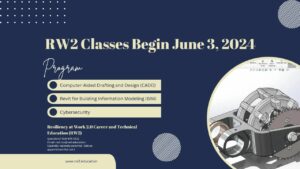
You may have graduated from high school last year or you may be graduating this year. You intend to enroll in a college or university next fall, or perhaps you want to go into a skilled trade. There will undoubtedly be some sort of post-secondary schooling or training, but you suddenly realize as you look in the mirror that you still wonder what your next move is going to be, and the answer is almost always, “I don’t know.”
Many people have difficulty deciding what they want to be when they grow up, while some people know what they want to be when they are very young. Another possibility is that they are aware of what they want to do but unsure of how to successfully pursue it.
I know everyone can relate to it. Don’t worry, you are not alone. Here, we are going through the 5 tips that can help you figure out what you want to study after high school. This tip will require some reflection, some time, and some effort, but it will all be worth it.
5 Tips or Guides before Choosing What to Study after High School
Tip #1: Assess Yourself.
The most important thing to think about when choosing a course is why you want to study. What are the things that make you happy and motivated? Consider your prior endeavors, such as employment, school, athletics, volunteer work, clubs, and travel. Ask yourself a few questions as you reflect, then jot down your responses. Think about the subjects that you find interesting. Consider your existing skills and experiences and think about potential job and career prospects.
Tip #2: What Are Your Interests?
It is very important to consider your interests and the course you wish to take. Are you taking it because you already picture an exciting job ahead of you, or is it because your parents want it for you? Start asking yourself now so that you can work out the path you want your course to take.
Are you good at problem-solving, for instance? Do you like technology? Do you prefer making things from scratch or mending things? Do you frequently find yourself assisting others during trying times? Maybe you’re a competitor. These are hints as to the types of jobs that might be appealing to you and may help you decide the course you want to take to achieve this job.
Tip #3: Do Some Research.
Do some research to learn more about the salary in your preferred industry before deciding what to study. It’s also a good idea to find out how much demand there is for the jobs you could get with the education or training you’re considering. Do too many people in your field struggle to get employment? Or are wages increasing because there aren’t enough skilled workers available? Because prospects may differ from location to location, make sure to verify what’s happening in your area by conducting internet research or contacting professionals who currently work in your sector of interest.
Find out what makes their work so important to them. What makes them eager to start the day each morning? What does a tough day on the job look like? How frequently do they happen, and how do they deal with them? Take note of their remarks and sense their enthusiasm. You’re probably on the right track if it resonates with you and inspires you to want to learn more.
Tip #4: Discover Your Possible Post-Secondary Options.
Ask people with the same interest as yours where they received their education and training and whether they would recommend it. You can use this as a starting point while checking out various types of education and training websites. You should also visit the RW2 Career and Technical Education website if you are considering careers related to Computer-Aided Drafting and Design (CADD); Revit for Building Information Modeling (BIM) and Cybersecurity or Information Security.
RW2 puts a lot of emphasis on resiliency because it is the best way to predict success in school and at work.
RW2 is also a nonprofit school that is approved by the Missouri Department of Higher Education and Workforce Development (MDHEWD), even though it is not a traditional school.
Participants must be at least a junior in high school or older. If you are not in high school, you must have at least a high school diploma. There are live teachers in the classes. Zoom is used to get to online classes. Moodle is a platform for learning resources that can also be used to get course materials, turn in assignments, check grades, and access other resources.
Visit this link: https://rw2.education/faq/ to know more about the school, short-term programs, and even scholarship and grant opportunities.
Tip #5: Discuss Your Ideas with the People Who Can Be of Assistance.
Your parents know you well enough to make guesses about what kind of job might be right for you. They have a lot of expertise, and your friends have listened to you talk about your dreams nonstop. Hence, this might be the right place to begin your search. On the other hand, those closest to you may disagree about your dream job is a good decision but that doesn’t imply they are correct. It will still be up to you to make the final decision for yourself.
It might be a good idea to speak with an advisor, career consultant, or take career exams if you’re having trouble deciding what’s next. But keep in mind these people can help you make better decisions for yourself, not necessarily by telling you what to do.
Key Takeaways
Choosing what’s next or what to study or what to do after high school is a very crucial decision. But if you finally make up your mind and later realize you made a mistake, it is never too late. At RW2 Career and Technical Education, there are people willing to assist you as you’re making your decision and throughout your education and training experience. Get your questions answered today. There’s no obligation. Call and talk to a team member at 816-875-0111 or arrange a call at your convenience.




Good day! I just want to offer you a big thumbs up for your excellent information you have got here on this post. Ill be coming back to your blog for more soon.
Hey Kaleb, thanks for reaching out. Students need to be in 11 grade or higher to participate in our program. We will keep your email.
Please email us at rw2.cte@rw2.education. Reach back out next year.